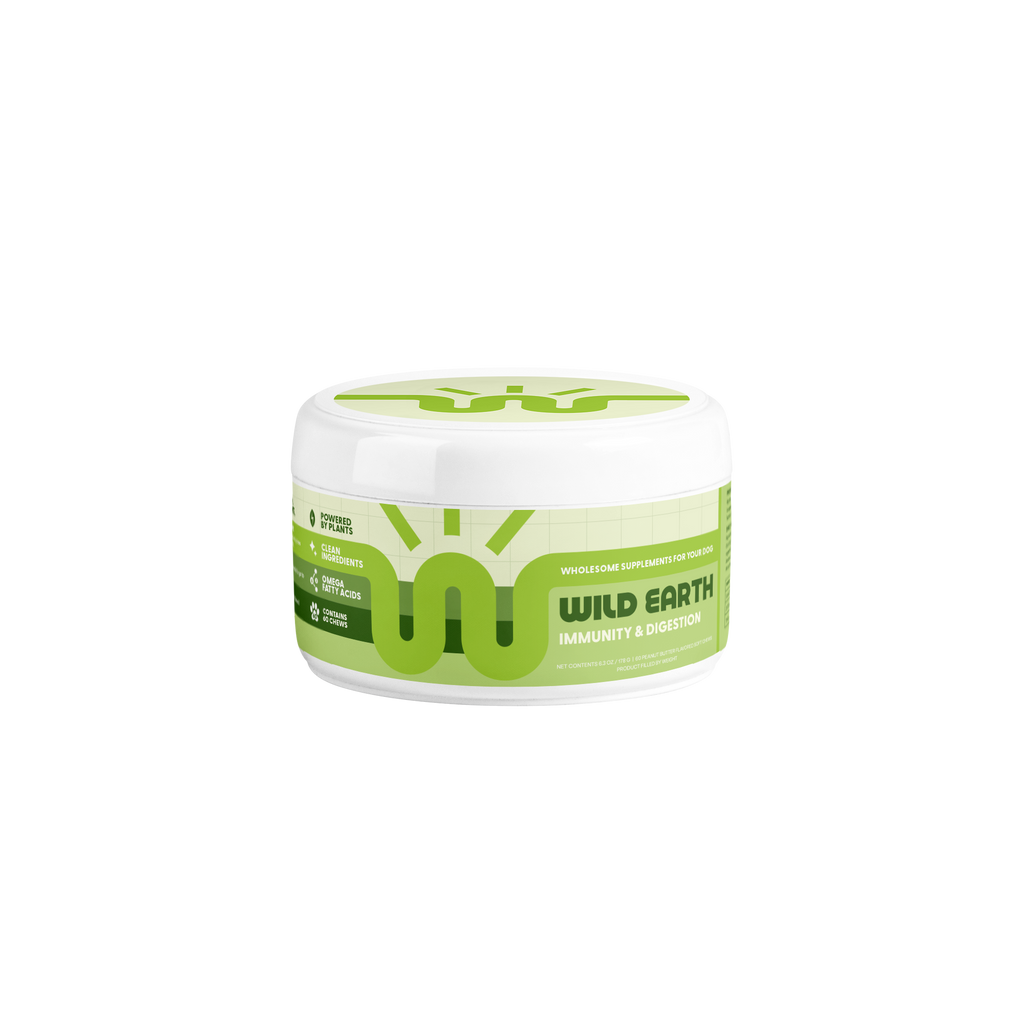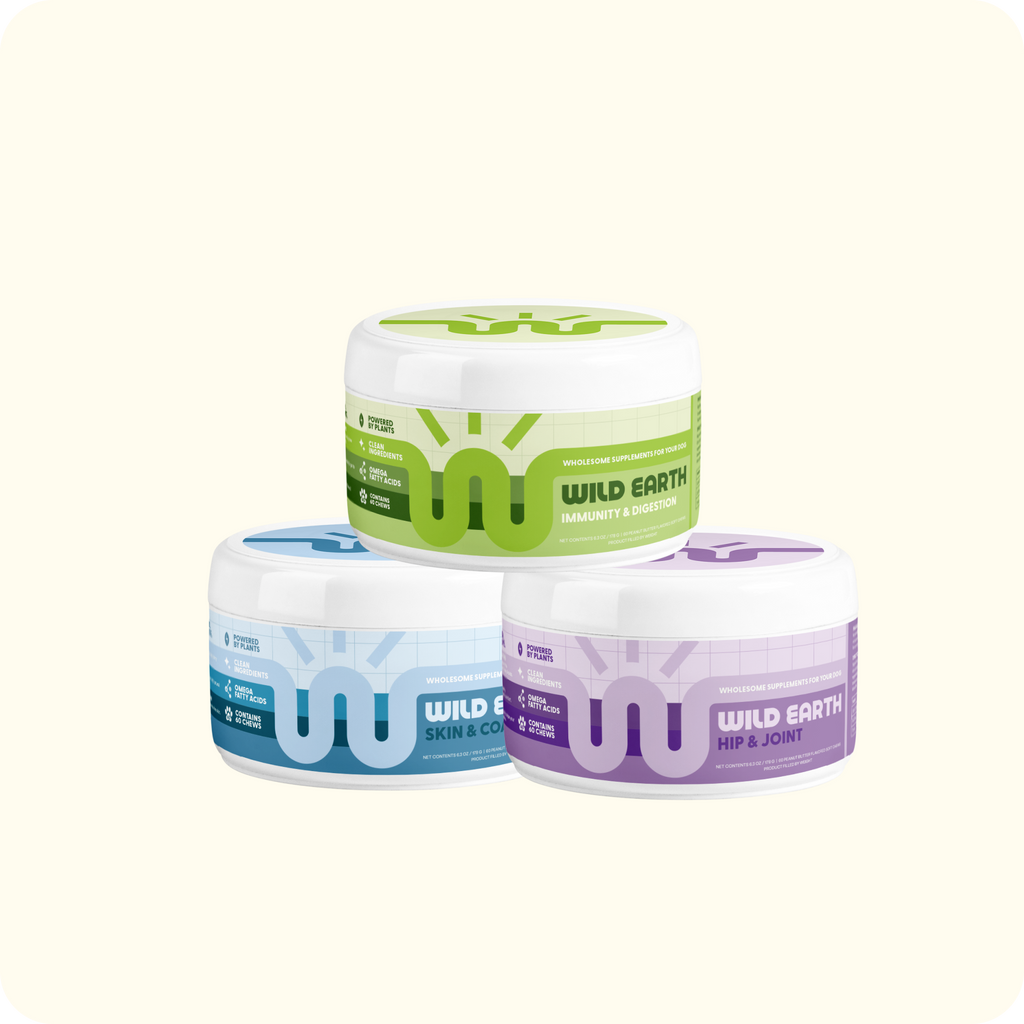
New Research: Vegan Dog Food is Better For The Planet
Did you know that your dog can help you lower your environmental impact?
We have known for a long time that the livestock sector has substantial adverse impacts on our environment (not to mention the cruelty associated with it). Given the current and projected future livestock consumption levels and our current planetary constraints, it is unsustainable.
Historically, many studies have called for reduction of livestock consumption by humans, and have demonstrated even eliminating meat once per week (Meatless Mondays anyone?) could significantly reduce our environmental impact. In fact, many people have chosen to become vegan for this exact reason – and the health benefits are a plus! There is a significant amount of data regarding the health benefits of veganism in humans – from reduced cancer risk to improved heart health.
Up until recently it was widely believed that dogs and cats could not be vegan (deja vu from when everyone believed all human vegans would be nutritionally deficient?). Over the past several years there has been an explosion of evidence that indicates that dogs and cats maintained on nutritionally complete and balanced vegan diets can have longevity and health at least equivalent, and in some respects superior, to those maintained on conventional meat-based diets. These studies have demonstrated that dogs fed a vegan diet have less health problems, visit the vet less frequently, and even live on average 1.5 years longer than their meat eating counterparts (Dodd et al., Res Vet Sci., 2022; Knight et al., PLOS One, 2022)
So what changed? Although historically vegan diets for pets were found to be nutritionally incomplete, these diets were often homemade and not commercially produced. Thankfully now vegan diets for pets are commercially available, developed by veterinarians, and most are nutritionally sound according to recent studies (Knight & Leitsberger., Animals, 2016).
Vegan diets also eliminate many of the common concerns associated with diets for pets such as bacterial contamination, the presence of food allergens, the use of by-products and rendered meats, etc.
Now that we know that our pets can be vegan and thrive, we can consider their environmental “paw print.” According to a University of California Los Angeles (UCLA) study published in 2017, meat used for pet food accounts for 25–30% of the meat consumed in the United States. That is a lot! In fact, if dogs and cats were their own nation, they would rank fifth in meat consumption.
But what does this mean for our environment?
Andrew Knight – a veterinarian and professor – set out to determine the environmental impacts of cats and dogs relative to humans in his most recent study published in October 2023. The results were astonishing!
When comparing the relative consumption of average livestock animals in the United States, dogs accounted for 17.7%, cats for 2.3% and humans for 80%. Globally, dogs accounted for 7.7%, cats for 1.2% and humans for 91.1%. What exactly do these numbers mean for us?
If all dogs in the United States transitioned to a nutritionally complete and balanced vegan diet, such as Wild Earth, it would spare 1.7 billion terrestrial livestock animals per year.
Doing the same for cats, it would spare 0.2 billion terrestrial livestock animals per year, and if for humans in the United States, it would save 7.8 billion terrestrial livestock animals per year.
If implemented globally, switching all dogs to a nutritionally complete and balanced vegan diet would spare 6 billion terrestrial livestock animals per year!
If all cats were transitioned to a vegan diet this would spare 0.9 billion, and for humans 71.3 billion.
Andrew Knight also evaluated other important aspects of sustainability such as land use, freshwater volumes, and greenhouse gas emissions.
As for land use, if all dogs were transitioned to a vegan diet, this would free up land larger than Saudi Arabia. For comparison, cats would free up land larger than Germany, and humans would free up land larger than Russia (the world’s largest country) plus India.
Furthermore, vegan diets for dogs would save freshwater volumes greater than all renewable freshwater in Denmark. For cats, vegan diets would save freshwater volumes greater than all renewable freshwater in Jordan, and Cuba for humans.
These diets would also reduce greenhouse gas emissions by amounts greater than all greenhouse gas emissions from South Africa for dogs, Israel (or New Zealand) for cats and the entire EU (or India) for humans.
Lastly, the numbers of additional people who could be fed using food energy savings associated with vegan diets exceeded the 2018 human populations of the entire European Union for dogs, France (or the UK) for cats, and every single nation or collective region on Earth for humans.
Don’t wait to make the switch to Wild Earth dog food. You’ll see the health benefits our food provides to your dog and *added bonus* reduce your environmental impact today!




































